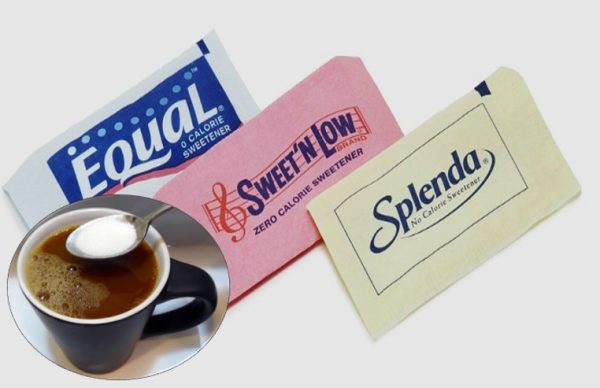
New Study Reveals Calorie Free Artificial Sweeteners Influence Brain’s Response To Appetite
Recent research has provided insights into how artificial sweeteners, particularly sucralose, may influence appetite regulation. A study conducted by the Keck School of Medicine at the University of Southern California found that sucralose consumption increased activity in the hypothalamus—a brain region responsible for hunger regulation—and heightened feelings of hunger, especially among individuals with obesity. Unlike sugar, sucralose did not elevate levels of hormones associated with satiety, potentially leading to increased appetite and altered eating behaviors. Unlike sugar, sucralose did not elevate levels of hormones associated with satiety, potentially leading to increased appetite and altered eating behaviors.
How do Artificial sweeteners alter the brain’s response?
Artificial sweeteners can alter the brain’s response to food, hunger, and reward processing in many ways:
1. Altered reward system response: The brain’s reward system, primarily regulated by dopamine, responds strongly to sugar. Artificial sweeteners provide sweetness without the expected caloric reward, leading to weaker dopamine release over time. This may cause people to crave more sweet foods to satisfy their brain’s reward expectations.
2. Changes in hunger and satiety signals: Studies suggest artificial sweeteners, like sucralose and aspartame, may disrupt appetite regulation by affecting brain regions like the hypothalamus, which controls hunger. Unlike real sugar, artificial sweeteners do not trigger insulin and GLP-1, hormones that help regulate satiety, potentially leading to increased appetite.
3. Impact on gut-brain communication: The gut communicates with the brain via the gut microbiome and vagus nerve. Some artificial sweeteners alter gut bacteria, which may send mixed hunger/fullness signals to the brain, influencing food intake.
4. Compensatory eating behavior: Because artificial sweeteners do not provide the expected energy boost, some research suggests the brain compensates by increasing cravings for high-calorie foods later.
5. Increased food motivation: Imaging studies have shown that people consuming artificial sweeteners may experience heightened activity in the amygdala and hypothalamus, regions responsible for food motivation, which could lead to increased food consumption.
Given these differing findings, it is clear that the effects of artificial sweeteners on appetite and overall health are complex and may vary among individuals. However, the impact of artificial sweeteners on appetite remains a topic of ongoing research and debate. For instance, a study from the University of Leeds reported that consuming foods with sweeteners resulted in similar reductions in appetite sensations and appetite-related hormone responses as sugary foods, suggesting potential benefits for blood sugar control.
While artificial sweeteners can help reduce sugar intake, they may also trick the brain into craving more food, particularly sugary or calorie-dense options. Their long-term impact on appetite control and metabolism remains an area of active research. Further research is necessary to fully understand these relationships. Individuals aiming to manage their weight or dietary habits should consult healthcare professionals for personalized advice.
References:
- https://keck.usc.edu/news/calorie-free-sweeteners-can-disrupt-the-brains-appetite-signals/
- https://www.thebrighterside.news/post/do-artificial-sweeteners-increase-your-appetite-new-study-has-the-answer/
- Image credit: Artificial sweeteners -Evan-Amos, Public domain, via Wikimedia Commons (Free to use)
- Coffee cup: https://pixabay.com/photos/black-cup-coffee-cup-of-coffee-cafe-2084535/ Free for use under the Pixabay Content License
Author: Sumana Rao | Posted on: April 4, 2025
« Ultra Processed Foods And Our Health Does Linoleic Acid from Seed Oils Increase Breast Cancer Risk? »






















4 Comments on “New Study Reveals Calorie Free Artificial Sweeteners Influence Brain’s Response To Appetite”
this content is helpful
Thank you!
This is eye-opening! I always thought artificial sweeteners were a safe way to cut calories, but it’s interesting (and a bit concerning) to learn how they might actually increase hunger by affecting brain signals. Thanks for sharing this important research!
Thank you Linda!
Write a comment